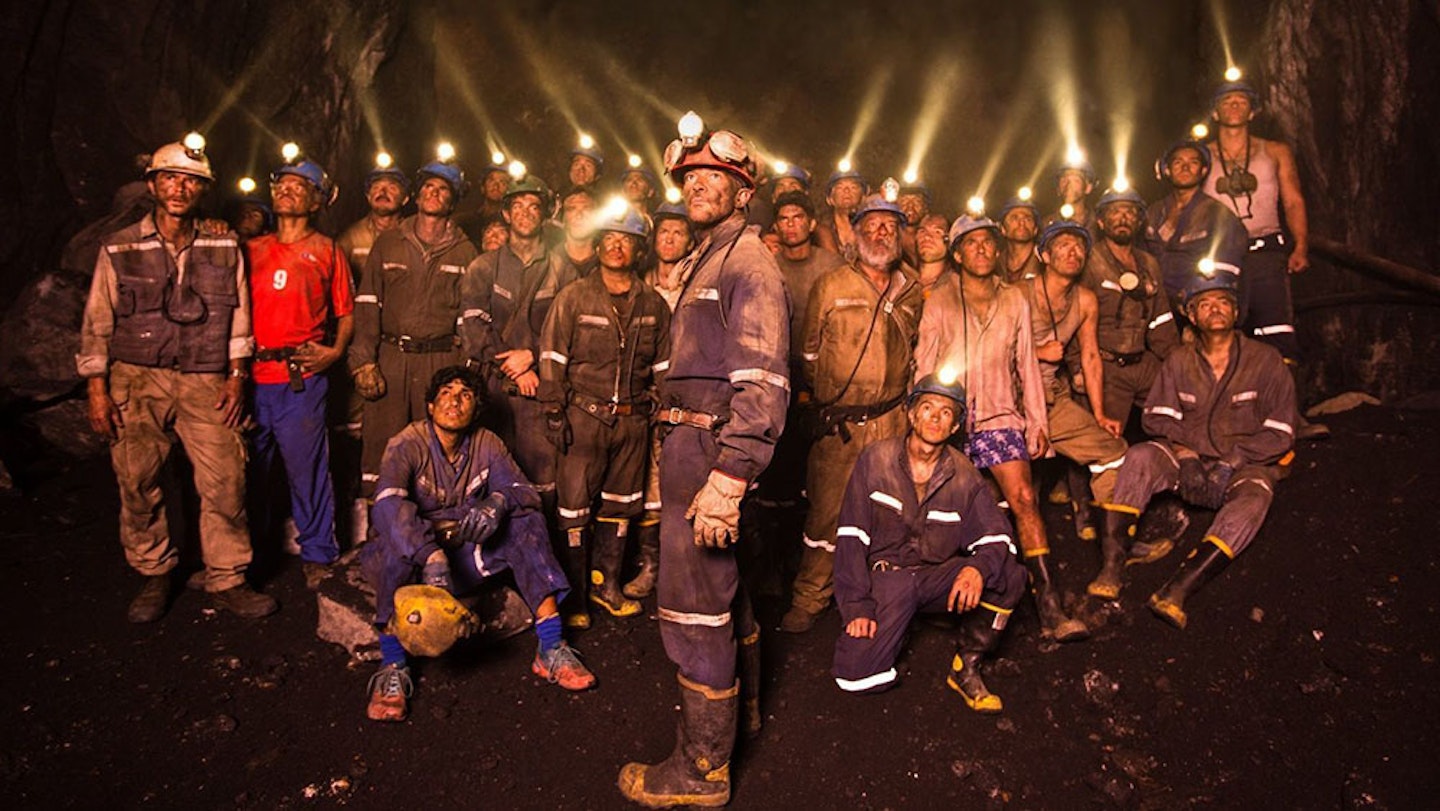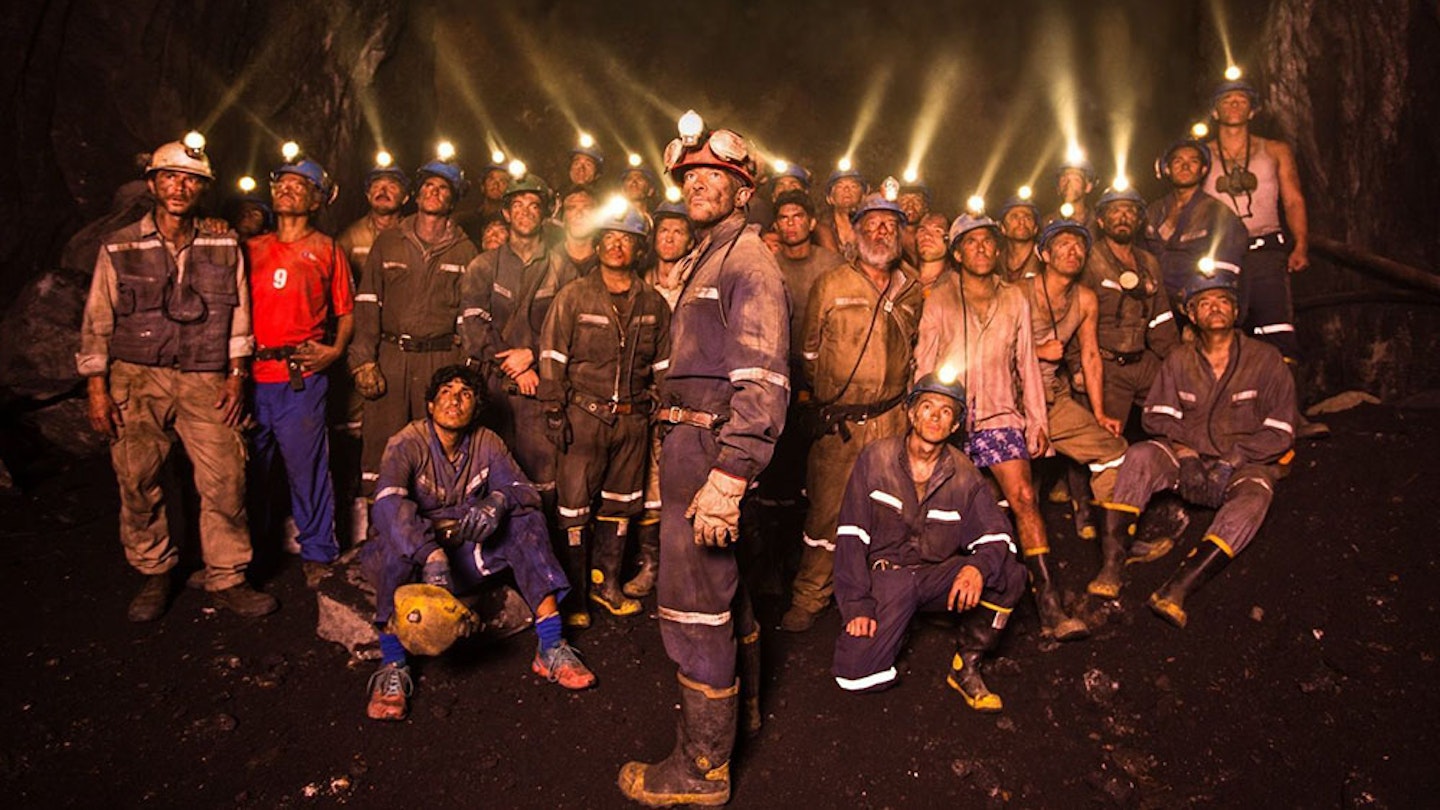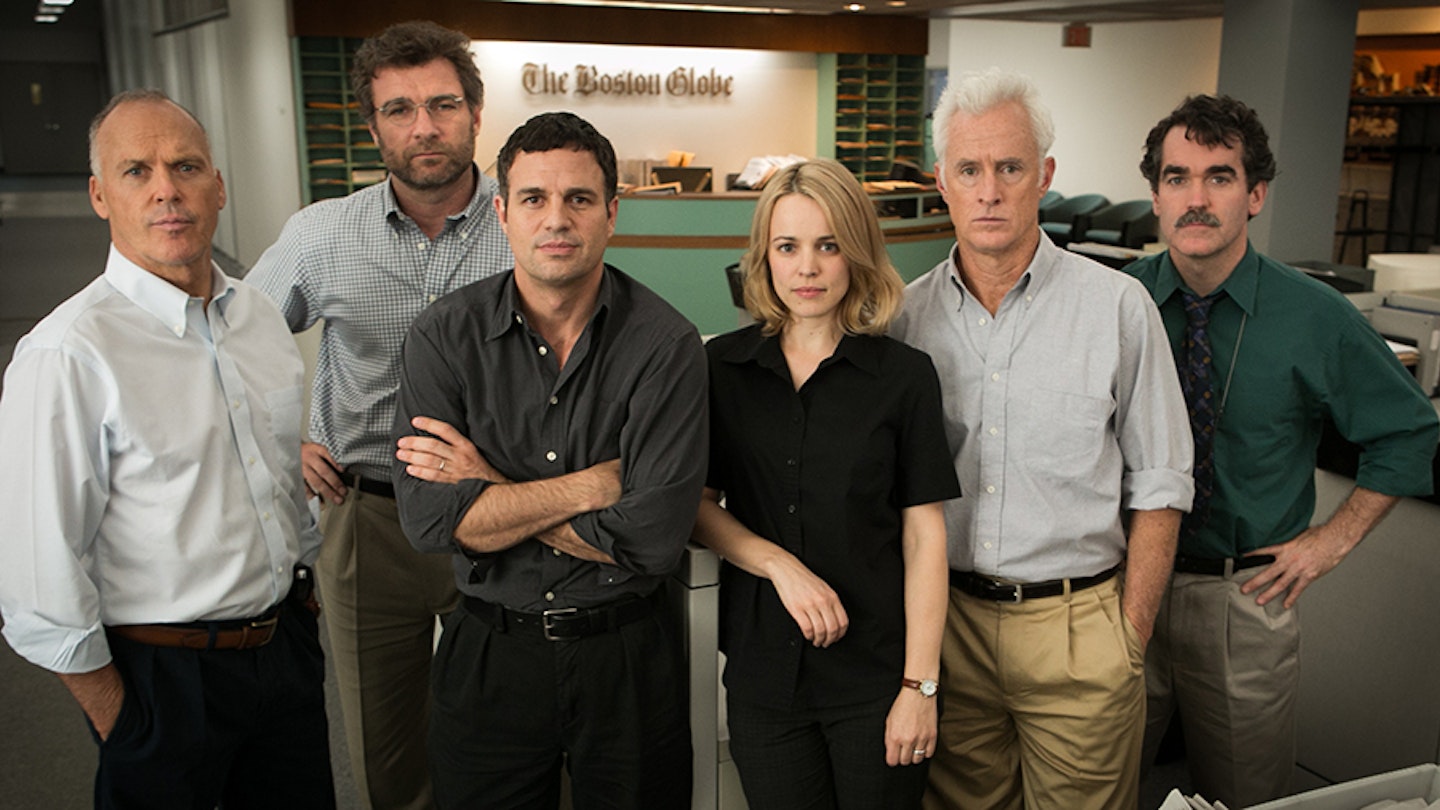There is an unlikely moment in Ridley Scott’s The Martian where crowds gather in Piccadilly Circus (with Big Ben in the background), waiting to hear the fate of stranded astronaut Mark Watney. If you are looking for a real life reference for the world holding its collective breath, you only have to spool back six years, when 33 miners emerged one by one from a capsule in the San Jose Mine in Chile’s Atacama Desert after spending 69 days trapped 2,300 feet underground.
Although that was a riveting, triumph of the spirit, real-time TV drama, Patricia Riggen’s big screen adaptation parlays the ordeal into a broad sudsy disaster movie that doesn’t do justice to the courage and individuality of the men or the smarts and ingenuity of the rescue mission.

The movie starts with a retirement party that sketches the doomed labourers in one-note, almost Hot Shots-style terms. There’s a grizzled veteran about to call mining quits (Gustavo Angarita), a young father-to-be (Mario Cassas), a philanderer (Oscar Nunez), a voice of reason no-one listens to (Lou Diamond Phillips), later joined by a drug addict (Juan Pablo Raba) estranged from his sister (the none more Chilean Juliette Binoche) and an ostracized Bolivian (Tenoch Huerta) who sparks tension in the ranks.
It’s not a cynical film — its heart is in the right place — just an obviously hamfisted one.
When things go pear-shaped underground – parts of the collapse are well-mounted — they look to "Super Mario" (Antonio Banderas, not the plumber) who becomes the de facto leader nursing them through starvation (there is a weird food related dream sequence), lack of oxygen and in-fighting. The cast work hard but, especially when you already know the outcome, you need more rounded, nuanced character and interesting dynamics to make you invest.
Things are little better above ground. The families setting up Camp Hope, a city of makeshift tents, and engineer Andre Sougarret (the none more Chilean Gabriel Byrne) mounting a rescue mission suggest there’s dramatic gravy to pour over the meat, especially when politicians sought to hijack the tragedy for political gain, but it’s never really developed.
The 33 lacks telling details and a compelling point of view, with little investigation into the conditions that perpetuate the accidents. It’s not a cynical film — its heart is in the right place — just an obviously hamfisted one.

